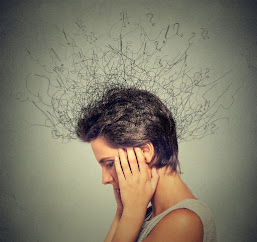
Genetic Factors: A family history of anxiety disorders can increase an individual's susceptibility. Brain Chemistry: Imbalances in neurotransmitters, such as serotonin and dopamine, may contribute to anxiety. Personality Factors: Individuals with certain personality types, such as being perfectionistic or easily overwhelmed, might be more prone to anxiety. Environmental Stressors: High-stress environments, traumatic events, or chronic stress can trigger or exacerbate anxiety. Medical Conditions: Certain medical conditions, such as thyroid disorders, heart arrhythmias, or chronic respiratory conditions, may contribute to anxiety symptoms. Common Anxiety Disorders: Generalized Anxiety Disorder (GAD): Excessive worry about various aspects of life. Panic Disorder: Recurrent, unexpected panic attacks. Social Anxiety Disorder: Fear of social situations and judgment. Specific Phobias: Intense fears of specific objects or situations. Obsessive-Compulsive Disorder (OCD): Intrusi...

